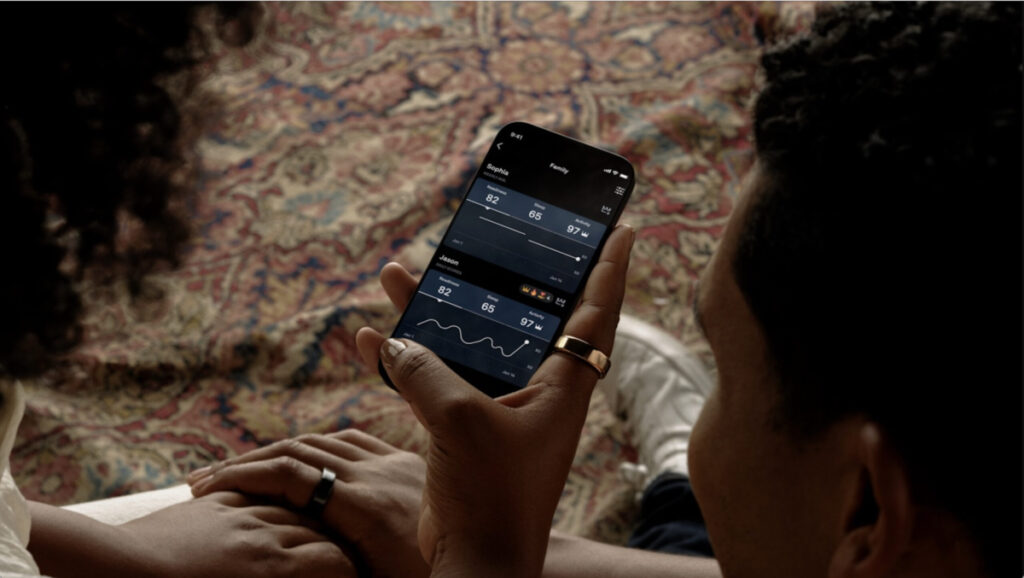Oura wants its app to inspire connection.
What’s happening: Smart ring users can now share high-level data like Sleep, Readiness, and Activity Scores with a selectable support group function called Circles. Oura’s new features are designed to help friends and family keep tabs and open doors to deeper conversations around health.
- Option to share with up to 20 users, with each user free to join 10 circles
- Customizable settings giving users control over which scores are shared, with who, and how often
- Ability to send emoji reactions or messages, learn from trends in communal data, and hold each other accountable on their health journeys
The addition of Circles expands the product’s utility beyond siloed sleep data to address the social dimensions of health. Oura hopes biodata sharing will prompt users to check on their friends when they see health scores suffering — what Oura CEO Tom Hale sees as a response to the loneliness epidemic unearthed by COVID.
“Isolation fundamentally affects our mental, physical, and societal health, which is why the US surgeon general recently reported that chronic loneliness is a public health crisis, increasing the risk of cognitive decline by 50%, cardiovascular disease by 29%, and stroke incidence by 32%.”
Alongside Circles, the company announced its new sleep staging algorithm, which “achieves 79 percent agreement with gold-standard polysomnography” for wake, light, deep, and REM sleep.
Connected health. The smart ring is just the latest activity-tracking platform to add community features to its user experience.
- In 2021, WHOOP enabled team chats, where groups can compare data, trade tips, and spark friendly competition.
- Any Distance debuted its Active Clubs social network this year, allowing close friends to celebrate logged wellness achievements in a private, personal platform.
- Strava, which integrated with Oura in 2022, is prioritizing community and revamping Clubs in its 2023 redesign.
Of note, in the opposite direction, Fitbit users were disgruntled when the Google-owned company abruptly ended social features like challenges and open groups earlier this year — with some mentioning Fitbit’s community was the only factor keeping them on the platform.
Punchline: Devices are great at highlighting weak spots — but studies show it’s social support that gives people the strength to solve them. Digital solutions who can effectively stoke and grow community have a promising avenue to catalyze lasting behavior change.






